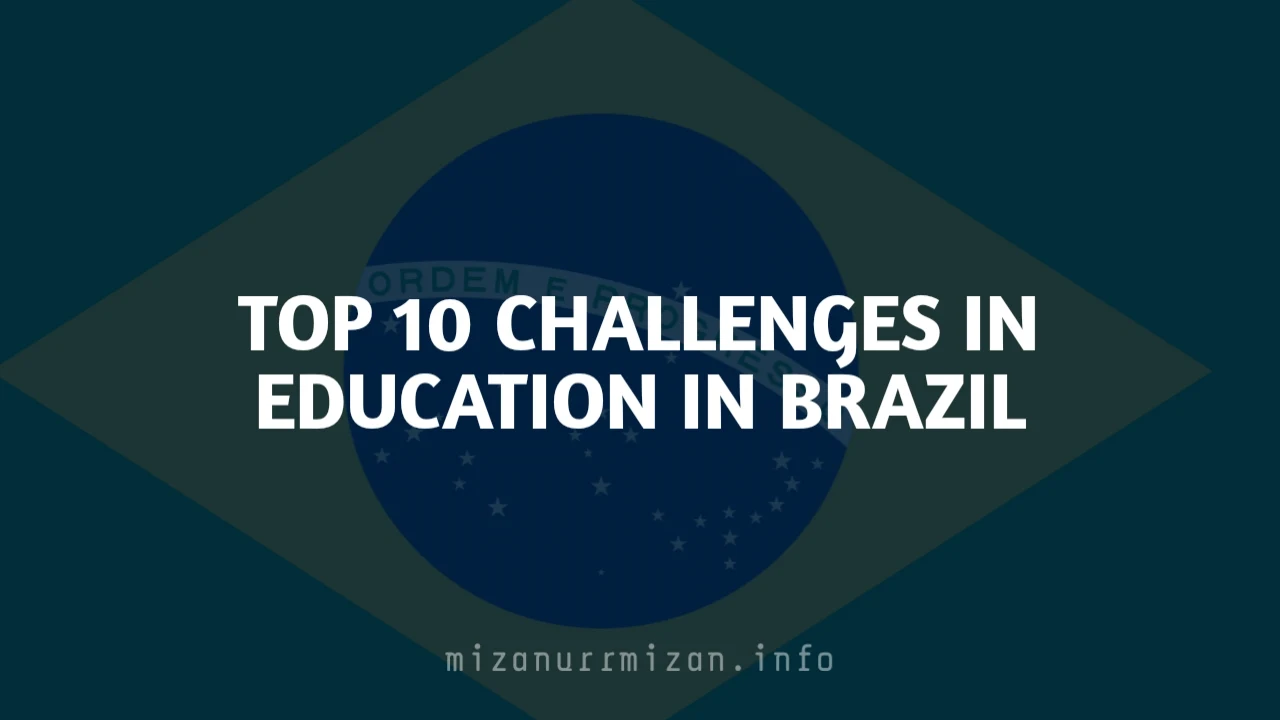Education is the cornerstone of societal progress, shaping the future of nations and individuals alike. In Brazil, a country rich in cultural diversity and natural resources, the journey towards educational excellence is marked by numerous challenges. From systemic inequalities to infrastructural deficiencies, addressing these obstacles is crucial for fostering inclusive growth and development. This article delves into top ten pressing challenges confronting the Brazilian education system and explores potential solutions to navigate this labyrinth.
1. Socioeconomic Disparities
Brazil grapples with profound socioeconomic disparities, which directly impact access to quality education. Low-income communities often lack adequate resources, infrastructure, and qualified teachers, perpetuating cycles of inequality. Bridging this gap requires targeted interventions, such as equitable funding distribution and targeted support programs for marginalized students.
2. Quality of Education
Despite significant progress, Brazil continues to face challenges in maintaining consistent standards of education quality nationwide. Disparities in curriculum implementation, teacher training, and assessment methodologies hinder educational outcomes. Addressing these issues demands comprehensive reforms, including curriculum standardization, teacher professional development initiatives, and innovative pedagogical approaches.
3. Teacher Shortages and Retention
The shortage of qualified educators, particularly in remote and underserved areas, poses a significant hurdle to educational advancement. Inadequate salaries, challenging working conditions, and limited career prospects contribute to high turnover rates among teachers. To attract and retain talent, policymakers must prioritize competitive compensation packages, professional development opportunities, and supportive work environments.
4. Inadequate Infrastructure
Many schools in Brazil face infrastructural deficiencies, ranging from inadequate facilities to a lack of essential resources like textbooks and technology. These shortcomings impede effective teaching and learning experiences, particularly in rural and peripheral regions. Investing in infrastructure upgrades, digitalization initiatives, and resource allocation is essential to create conducive learning environments for all students.
5. Language and Literacy Challenges
Brazil's linguistic diversity presents unique challenges in literacy education, especially for non-native Portuguese speakers and indigenous communities. Limited access to culturally relevant materials and bilingual education exacerbates language barriers, hindering academic achievement. Promoting multilingualism, culturally responsive pedagogies, and targeted literacy programs can empower students from diverse linguistic backgrounds.
6. Access to Higher Education
Despite efforts to expand access to higher education, significant barriers persist, particularly for marginalized groups and residents of remote areas. Limited university capacity, financial constraints, and unequal opportunities exacerbate disparities in tertiary education enrollment. Enhancing scholarship programs, vocational training initiatives, and distance learning options can broaden access and promote social mobility.
7. Digital Divide
The digital divide exacerbates educational inequalities, with many students lacking access to essential technology and internet connectivity, particularly in rural and low-income areas. Remote learning during the COVID-19 pandemic further highlighted these disparities, exacerbating educational inequities. Bridging the digital gap requires comprehensive strategies, including infrastructure expansion, device provision, and digital literacy training for educators and students.
8. Violence and Safety Concerns
Instances of violence and safety concerns in schools pose significant challenges to student well-being and academic performance. Bullying, gang-related activities, and community violence create hostile learning environments, affecting student attendance and engagement. Implementing holistic approaches to school safety, including conflict resolution programs, mental health support services, and community partnerships, is essential to fostering a culture of respect and security.
9. Special Needs Education
Ensuring inclusive education for students with special needs remains a formidable challenge in Brazil. Limited resources, insufficient teacher training, and societal stigmas contribute to the marginalization of this vulnerable population. Developing inclusive policies, expanding specialized support services, and promoting awareness and acceptance are essential steps towards creating an inclusive educational landscape.
10. Policy Implementation and Governance
Effective policy implementation and governance are fundamental to addressing the myriad challenges facing the Brazilian education system. Inconsistent enforcement, bureaucratic hurdles, and political instability hinder progress and perpetuate systemic issues. Strengthening governance structures, fostering stakeholder collaboration, and prioritizing evidence-based policymaking can facilitate sustainable reforms and drive positive change.
Conclusion
Addressing the multifaceted challenges in Brazil's education system requires a concerted effort from government entities, educational institutions, civil society, and international partners. By prioritizing equity, inclusivity, and quality, Brazil can unlock the transformative power of education, paving the way for a brighter and more prosperous future for all its citizens. Through strategic investments, innovative reforms, and collective action, the nation can navigate the labyrinth of educational challenges and emerge stronger, more resilient, and better equipped to meet the needs of future generations.


Post a Comment
Write you think.